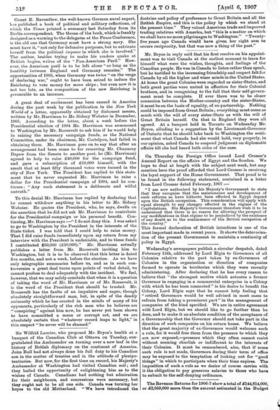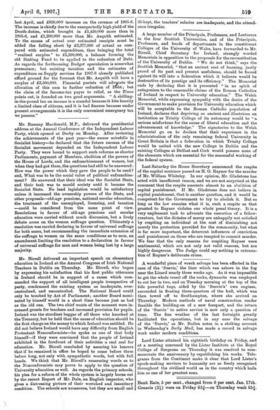The Revenue Returns for 1906.7 show a total of £144,814,000,
or A039,000 more than the amount estimated' in the Budget last April, and £836,000 increase on the revenue of 1905-6. The increase is chiefly due to the unexpectedly high yield of the Death-duties, which brought in £1,430,000 more than in 1905-6, and £1,200,000 more than Mr. Asquith estimated. To the excess of actual over estimated receipts must be added the falling short by £3,377,000 of actual as com- pared with estimated expenditure, thus bringing the total "realised surplus" to £5,390,000, a balance forming the old Sinking Fund to be applied to the reduction of Debt. As regards the forthcoming Budget speculation is somewhat premature; but existing taxation and the estimates of expenditure on Supply services for 1907-8 already published afford ground for the forecast that Mr. Asquith will have a surplus of £3,500,000. Financial purists will advgpate the allocation of this sum to further reduction of Mbt ; but the claim of the Income-tax payer to relief, as the Times points out, is founded on two good arguments. " A shilling- in-the-pound tax on income is a scandal because it hits heavily a limited class of citizens, and it is bad finance because under present arrangements it is the only convenient emergency tax we possess."











































 Previous page
Previous page